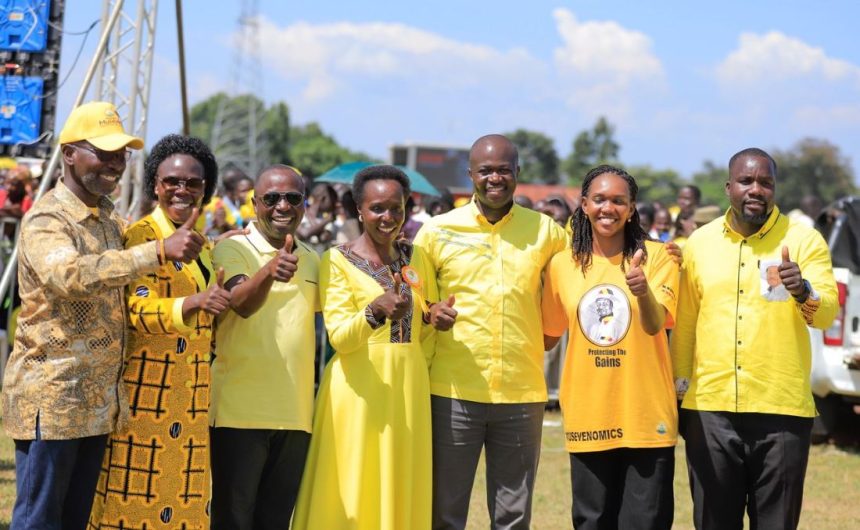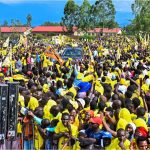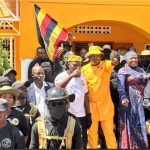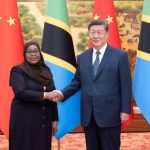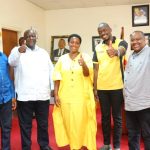Published on 06/11/2025
National Resistance Movement (NRM) has already secured seats without a fight, with several candidates declared unopposed.
“People shouldn’t forget ‘power is power’. Whoever holds it wields it,” said Richard Lumu, MP for Mityana South, reacting to the development that hands the ruling party an early edge before the 12th Parliament convenes in May 2026.

The Electoral Commission’s recent nominations revealed a slate of unopposed victors, all NRM-aligned. Speaker Anita Among clinched the Bukedea District Woman MP seat unchallenged. Deputy Speaker Thomas Tayebwa sailed through in Ruhinda North, Mitooma District. Others include Lillian Paparu (Arua District Woman Representative), Catherine Akumu Mavenjina (Older Persons Representative), Ruth Rujoki (Kiruhura District Woman Representative), and Emely Kugonza (Buyanja East MP).
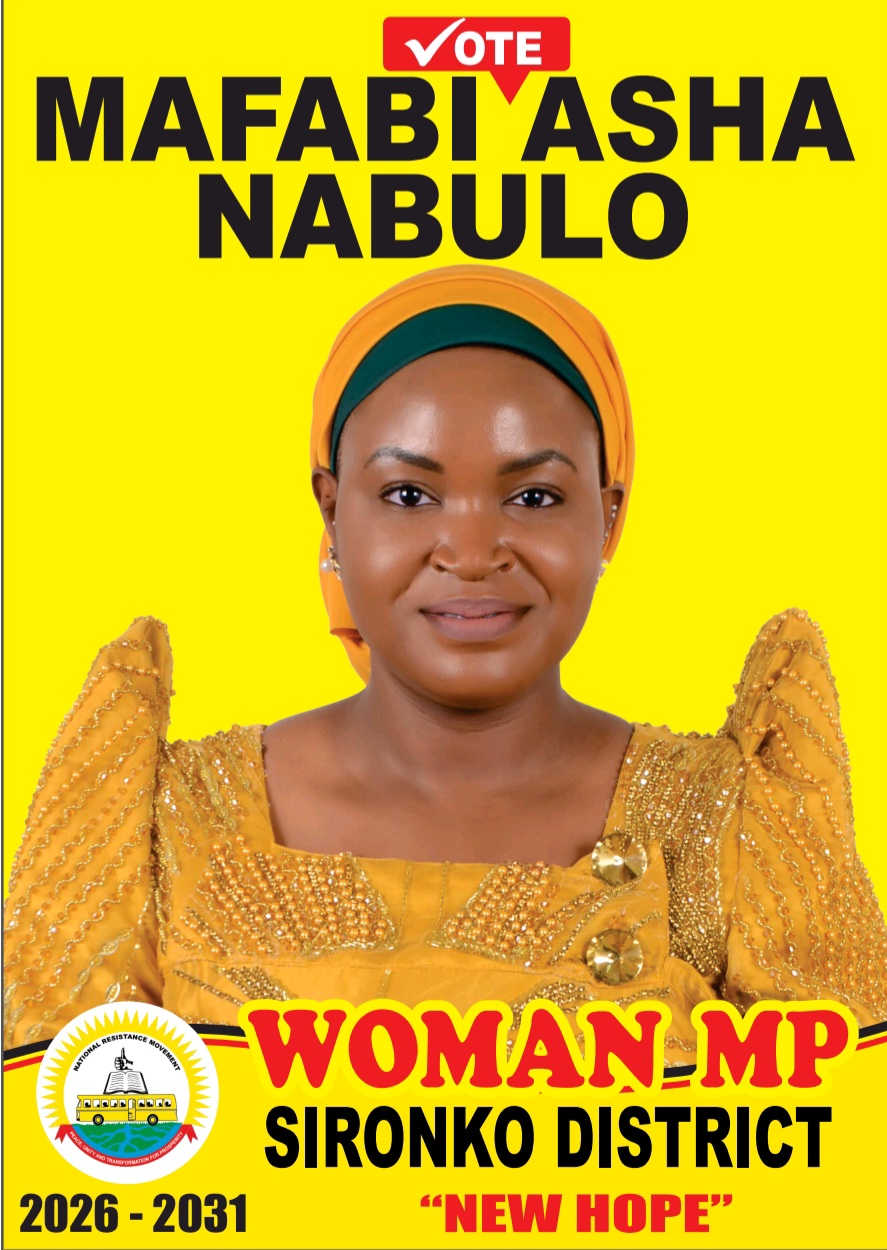

Others include Peggy Joy Waako, National Female MP for Older Persons; Jeniva Nalongo Arianaitwe, Rubirizi District Woman MP; Banya Emmanuel Natal, Koboko District MP; Okot Boniface Henry, the current Northern Region Youth MP contesting for Kole South Constituency; former Uganda Media Centre Executive Director Ofwono Opondo, MP for Older Persons representing the Eastern Region; and Laura Kanushu Opori, National Female MP for Persons with Disabilities (PWDs).
Opposition figures decried the trend as a troubling echo of past electoral dominance. Former Leader of Opposition Winnie Kiiza drew parallels to the 1980 elections, when the Uganda People’s Congress (UPC) saw 17 candidates go unopposed,14 initially, plus three more from Kasese on election eve. “The key difference? The opposition then was radical – UPM/NRA/NRM took to the bush. Today, we tolerate it, betting on ‘protest votes’ or ‘change you can trust.’ Keep the faith!” Kiiza posted on X (formerly Twitter).
Experts offered nuanced views, rejecting blanket claims of opposition frailty. Timothy Chemonges, executive director of the Centre for Policy Analysis (CEPA), pointed to NRM infighting as the real culprit. “NRM-leaning independents signal deep factionalism and unmet expectations in party primaries,” he said. “This blurs party lines, eroding ideological clarity and discipline essential to multiparty democracy.”
UPC ideologue Joseph Ochieno agreed unopposed wins aren’t inherently unusual but warned of one-party dominance’s perils. “It reflects the ruling party’s strength, not opposition weakness, though in multiparty systems, it’s unhealthy for rivals to skip fielding candidates,” he said. Ochieno urged opposition parties to contest everywhere: “Field candidates not just to win, but to build presence, spread messages, test structures, train for the future, and gauge strength. It’s about visibility, not victory alone.”

A 2021 report by the Alliance for Campaign Finance Monitoring (ACFIM) exposed how cash greased unopposed paths. Titled The Banknote Controlled Voter Consent: An Extended Study on Campaign Financing for Uganda’s 2021 General Elections, it detailed 11 unopposed candidates, framing such outcomes as markers of “political might” that could lure presidential favors like ministerial posts.
ACFIM Executive Director Henry Muguzi dismissed excuses of foul play, like bribery or rigged nominations, as “lame.” “Parties failed to groom competitive challengers,” he said. “Incumbents’ financial muscle intimidates rivals – you see the gap and think, ‘I can’t win.’ Blame weak party development, not conspiracies.”
The report pegged 2021 election spending at a staggering UGX 3.98 trillion (about US$1.08 billion) across presidential, parliamentary, and local races in 146 districts over 15 months, making it Uganda’s costliest poll. This dwarfed 2016’s UGX 2.4 trillion (US$716 million), with parliamentary candidates splashing over UGX 1 billion tripling in number. Muguzi warned: “These are conservative estimates, 8.6% of the FY 2020/21 national budget. Without reforms on opaque financing, 2026 will be even pricier.”
In the October 28, 2025, plenary, MPs congratulated Tayebwa but voiced unease. Butambala County’s Muwanga Kivumbi offered tempered praise: “You’re already in the next Parliament – circumstances bother some of us, but congratulations nonetheless.”
Lumu pushed back on opposition weakness narratives, suggesting unopposed wins highlight incumbents’ credentials. “It might mean the opposition feels outmatched,” he said. But he cautioned infighting: “As opposition, are we doing enough? Or are we scratching each other in strongholds? Endless, valueless battles tire voters, making us seem unserious about power.”
Mityana Woman MP Joyce Bagala called it “hurtful and disappointing,” urging honest self-reflection. “NRM has seats before polls even start – that’s no balance,” she said. “It weakens us, no pretense. We need unity, better strategy, and planning to even the odds.”

Makindye West’s Allan Ssewanyana echoed this, blaming power abuses over opposition lapses. “We’ve fronted candidates everywhere, even the presidency,” he said. “But powerful incumbents connive with police and EC, using money and clout to clear fields. With government resources at hand, they twist power negatively – only eight unopposed out of 300 isn’t weakness; it’s coercion.”
In a parting shot, Lumu rallied: “Fellow opposition: Stop fighting for God’s sake. Ditch useless battles so voters see us as true power-seekers, not self-servers.” As nominations wrap, the unopposed saga underscores Uganda’s electoral imbalances, with money and might tilting the scales.

